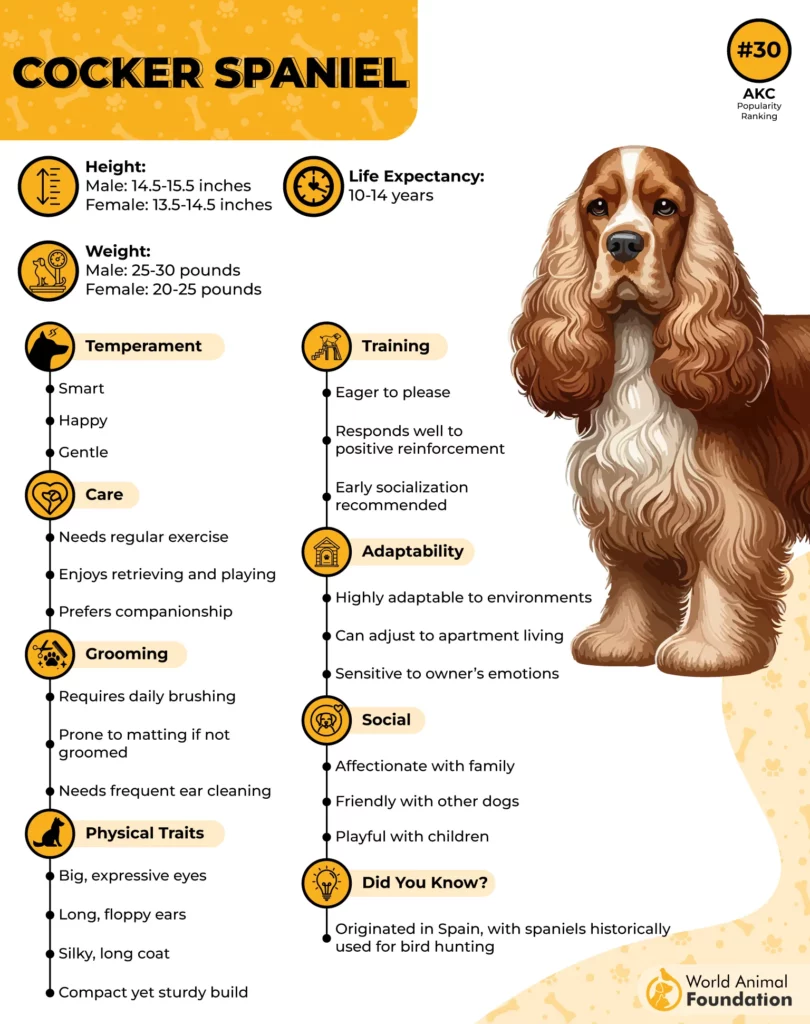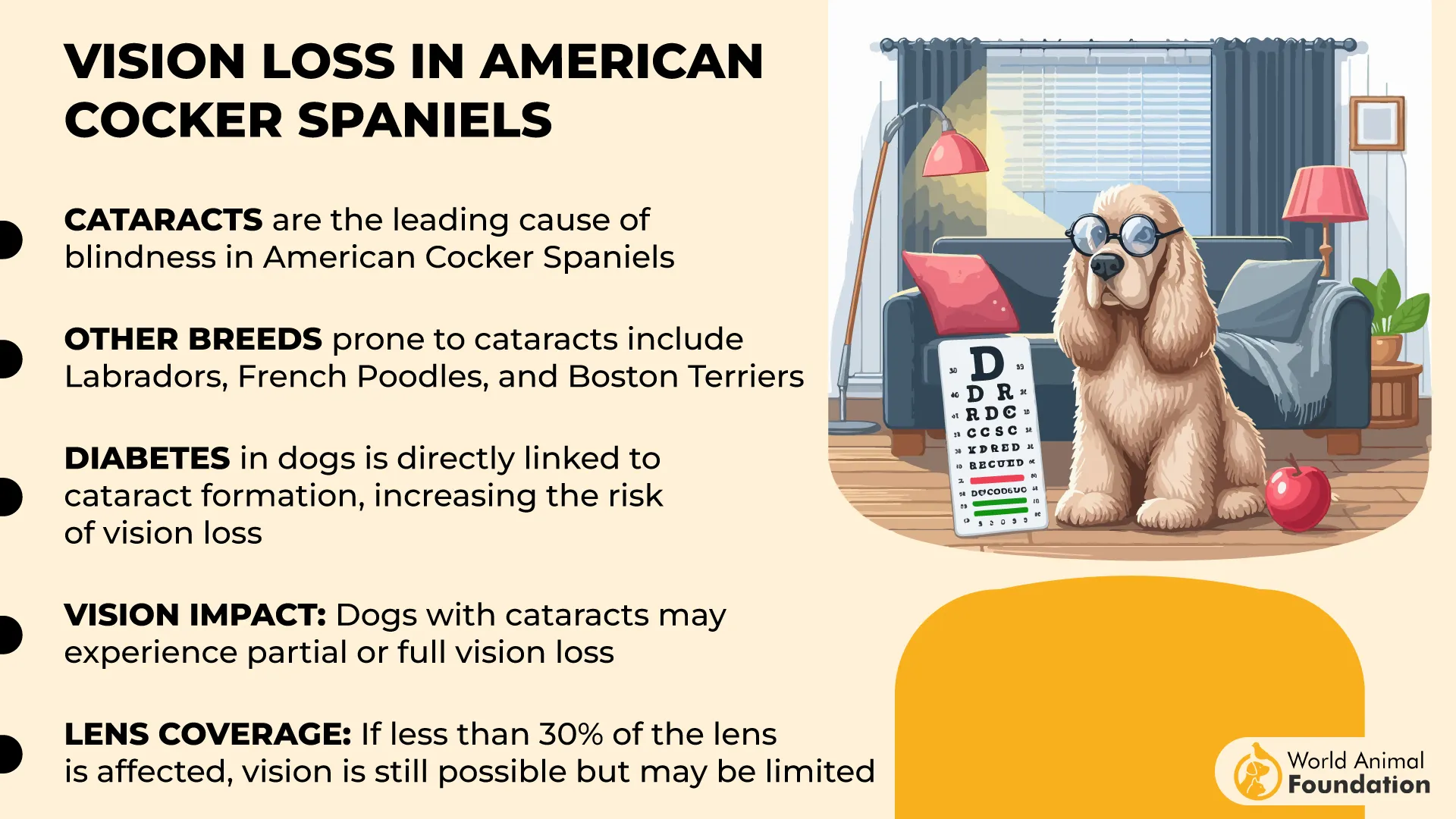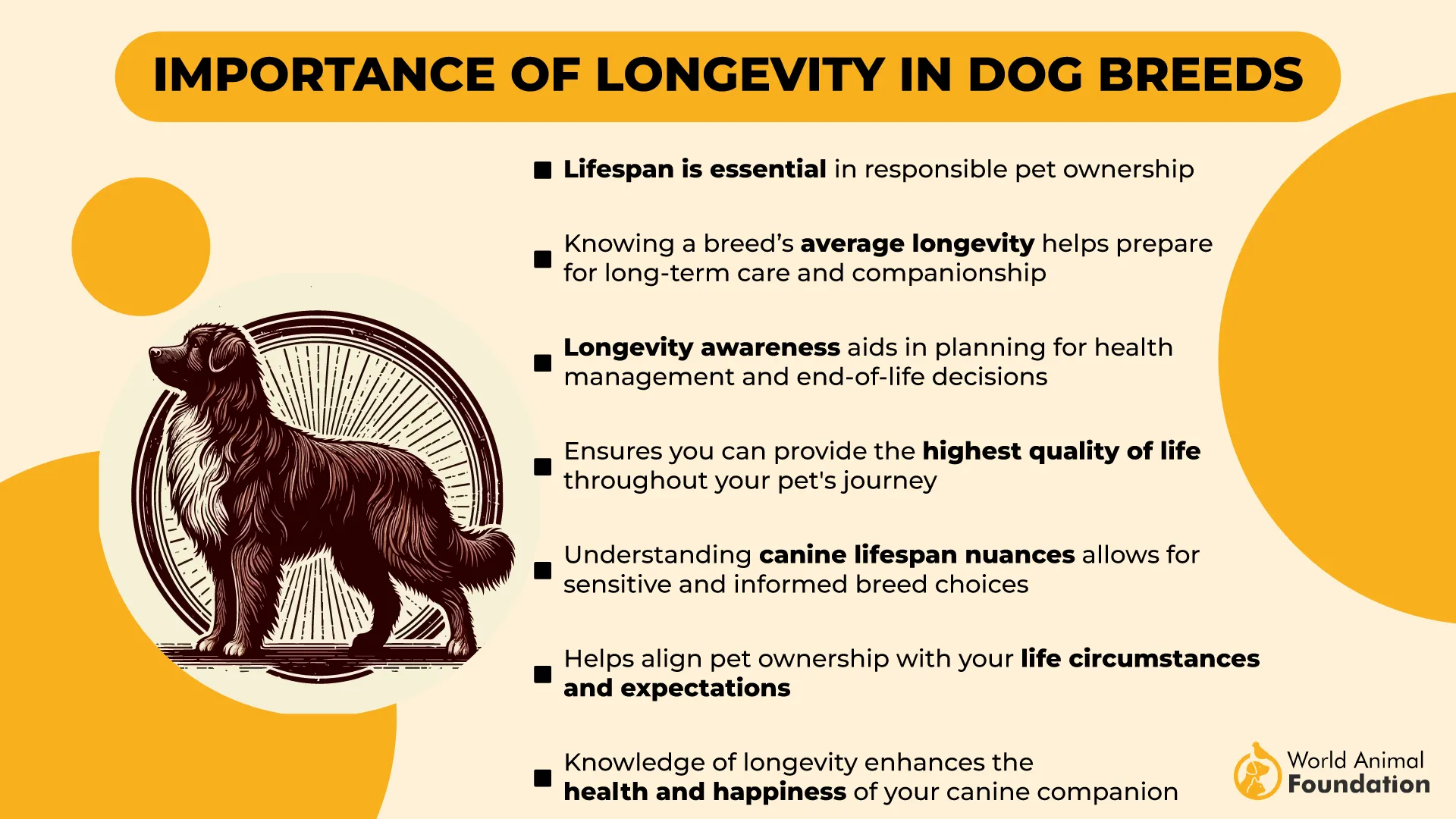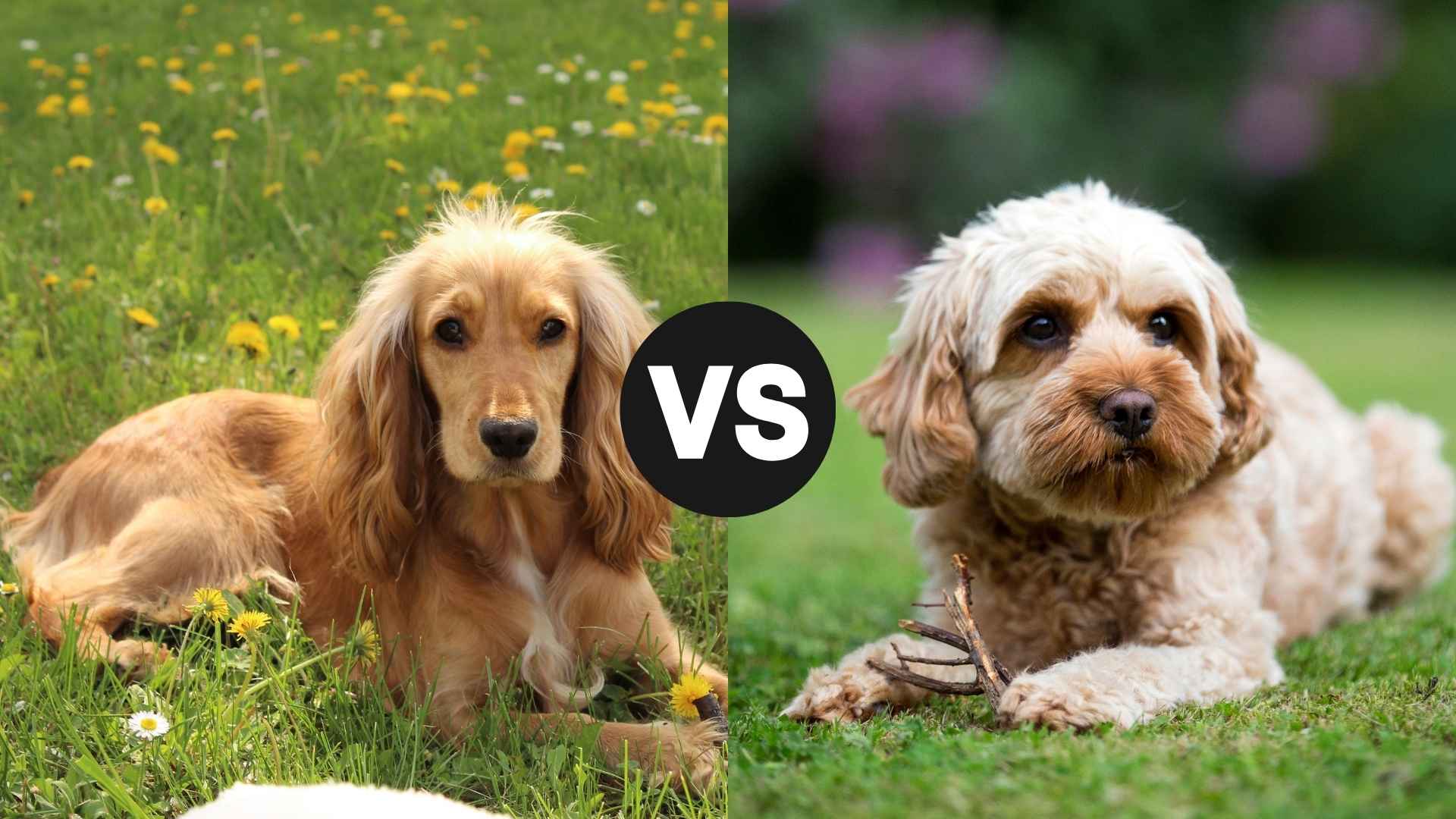So you’re ready for a dog, but you’re stuck between two certified cuties: the charming Cocker Spaniel and the curly-coated Cockapoo. First of all—congrats. You’re choosing between two of the friendliest, most photogenic dogs on the planet. But here’s the twist: while they may seem similar at first sniff, these breeds have totally different vibes.
One’s a purebred sweetheart with silky ears and a royal history. The other? A designer hybrid with curly fur, sky-high smarts, and a reputation for being the cool kid on the dog block. Picking the right one isn’t just about which is more Instagrammable (spoiler: both win). It’s about energy levels, grooming needs, trainability, and how much chaos you’re okay with on a daily basis.
With pet ownership on the rise (and dog strollers becoming a whole thing), it’s never been more important to choose a breed that fits your lifestyle and your personality. Whether you’re more of a chill homebody with a podcast or a brunch-loving park hopper, the right dog will only amplify your vibe.
In this breakdown, we’re putting the Cocker Spaniel and the Cockapoo nose-to-nose across key categories. You’ll get a detailed comparison on size, training, grooming, health, and lifespan, with all the fun facts and fluff (pun intended) you need to make the right call.
Grab a coffee, get comfy, and let’s find out which pup is your four-legged soulmate.
|
Feature |
Cocker Spaniel |
Cockapoo |
|---|---|---|
|
Breed Type |
Purebred (Sporting Group) |
Designer hybrid (Cocker Spaniel × Poodle) |
|
Size Range |
20–30 lbs; 13.5–15.5 inches |
12–25 lbs; 10–15 inches (varies by Poodle parent size) |
|
Coat Type |
Medium to long, flat/wavy, silky |
Curly or wavy, Poodle-like |
|
Grooming Needs |
Moderate; regular brushing & trims |
High; frequent brushing + professional grooming every 6–8 weeks |
|
Shedding |
Moderate shedding |
Low to minimal shedding (often hypoallergenic) |
|
Exercise Needs |
Moderate to high (at least 1 hour/day) |
Moderate to high (mental + physical stimulation needed) |
Cocker Spaniel vs. Cockapoo
Let’s get one thing straight—both breeds are absolute gems. But their roots shape everything. The Cocker Spaniel is a sporting breed with origins in hunting. They’re known for their gentle demeanor, expressive eyes, and classic good looks. Purebred to the core, they bring elegance, loyalty, and a bit of tradition to the table.
The Cockapoo, on the other hand, is a designer dog, a mix of a Cocker Spaniel and a Poodle. This means you’re getting a hybrid full of zest, smarts, and curls that make strangers stop you mid-walk. Cockapoos are famously happy-go-lucky and low-key brilliant, which makes them great for first-time owners or busy millennials who still want a buddy.
Cocker Spaniels tend to be a bit more sensitive and emotionally intuitive. They need closeness and can sometimes lean into clingy territory (but like, the cute kind). Cockapoos are more adaptable, a little more independent, and usually ready to go with the flow—whether that’s a couch session or a hike.
Both breeds are major cuddle bugs, but Cockapoos might have a slight edge in the “funny weirdo” category. These lovely dogs are a bit more playful and unpredictable, while Cocker Spaniels stay within their sweet, well-mannered comfort zone.
The big takeaway? Cocker Spaniels are classic companions—charming and emotionally rich. Cockapoos are quirky besties—smart, energetic, and full of surprises. Your choice really depends on the type of dog parent you want to be.
Cocker Spaniel vs. Cockapoo: Physical Size
When it comes to size, there’s a bit of overlap, but also some key differences depending on the type of Cocker Spaniel (American or English) and the Poodle size used in the Cockapoo mix.
A typical Cocker Spaniel, recognised by the American Kennel Club, weighs around 20–30 pounds and stands about 13.5 to 15.5 inches tall at the shoulder. They’re compact but solidly built, giving them a “just right” feeling—not too small, not too bulky. The cocker’s coat is typically medium to long in length, with a smooth, flat, or slightly wavy texture.

Cockapoos, on the other hand, can vary. If they’re mixed with a Toy Poodle, they might stay under 12 pounds. Mixed with a Miniature Poodle? They usually land in the 13–25 pound range. Their height can be anywhere from 10 to 15 inches, depending on lineage.

Because of their mixed background, Cockapoos often have leaner frames and more delicate features compared to the rounder, fuller Cocker Spaniel. They’re usually lighter and slightly more athletic in build.
If you want a pup that’s easy to carry, slip into a car seat, or cuddle in a small apartment—Cockapoo’s your go-to. If you’re looking for a bit more structure and muscle without going full big-dog mode, the Cocker Spaniel is a great fit.
Bottom line: both are apartment-friendly, but Cockapoos offer a little more size flexibility, while Cocker Spaniels bring that classic medium-dog presence.
Cocker Spaniel vs. Cockapoo: Training Requirements
Training time! Both dogs are smart, eager to please, and generally a joy to work with, but they bring different energy to the classroom.
Cocker Spaniels are soft-hearted and emotionally sensitive, which means they respond best to gentle, positive reinforcement. Yell or scold them too harshly, and they may shut down or sulk (they’re lovers, not fighters).

The exercise needs of a Spaniel are moderate to high, depending on whether you have an American or English variety, and whether your dog leans more chill or sporty. Exercise cocker spaniels at least 1 hour of exercise per day.
Cockapoos, on the other hand, bring the Poodle’s genius to the table. They’re whip-smart, fast learners, and love to show off. That said, their cleverness can lean mischievous if they get bored—think “I figured out how to open the pantry” energy.
Both breeds need consistency, early socialization, and a good balance of structure and play. But Cockapoos may pick up commands faster, while Cocker Spaniels need a little more patience and reassurance.
One note: Cockapoos are often better with solo entertaining and can handle being left alone longer (with training). Cocker Spaniels crave closeness and may experience separation anxiety if left too long.

If you’re up for interactive training games, Cockapoos will wow you. If you want a sweet student who works from the heart, Cocker Spaniels are your golden child.
Cocker Spaniel vs. Cockapoo: Grooming and Maintenance
Okay, real talk—both of these breeds require grooming, but the Cockapoo might just keep your groomer on speed dial. Why? Because that glorious curly coat can go from “adorable teddy bear” to “dreadlock emergency” in a hot second.
Cockapoos, thanks to their Poodle genes, often have thick, curly, or wavy coats that mat easily. Regular brushing (we’re talking every other day), plus professional grooming every 6–8 weeks, is a must if you want to avoid a full shave-down.

Cocker Spaniels, on the flip side, rock those long, silky ears and feathery legs. While they don’t mat quite as easily, they do shed more and need consistent brushing to avoid tangles and keep their coats shiny. Plus, their iconic ears are prone to ear infections if not kept clean and dry.
Both breeds are good family pets that need their nails trimmed, eyes wiped, and teeth brushed regularly (yep, canine dental care is a thing). But if you want lower maintenance in terms of brushing, the Cocker Spaniel may be the slightly easier option.
Cockapoos win in the hypoallergenic department, though. Their Poodle heritage means they’re more allergy-friendly and shed much less—great for sensitive households or neat freaks.
In short: Cockapoo = fluff ball with spa needs. Cocker Spaniel = flowing locks with regular upkeep. Pick your grooming vibe.
Cocker Spaniel vs. Cockapoo: Health Considerations
Both breeds are relatively healthy, but like all dogs, they come with their own set of common issues to watch for, especially depending on their breeder and bloodlines.
Cocker Spaniels are prone to ear infections (those floppy ears trap moisture), eye conditions like cataracts and glaucoma, and a few hereditary concerns like hip dysplasia and heart issues. Responsible breeding helps a lot here, so vet your breeder like you’re hiring a nanny.

You need to care for Cocker spaniels by taking them to the vet on a regular basis.
Cockapoos, being a hybrid breed, can benefit from “hybrid vigor” (a fancy term that means mixing breeds may reduce inherited conditions). When developed by a reputable breeder, they showcase consistently good health.
Still, they can inherit issues from both Poodles and Cocker Spaniels—like hip problems, ear infections, or luxating patellas (that’s a fancy way of saying their kneecaps can slip).
Another factor? Mental stimulation. Cockapoos are high-intelligence dogs and can develop anxiety or destructive behaviors if under-stimulated. Cocker Spaniels are more emotionally sensitive and need strong bonding time to stay happy.
With both breeds, regular vet checkups, exercise, mental games, and a good diet go a long way in maintaining health. Bonus points for adding fish oil, good dental chews, and early training into the mix.
Pro tip: get pet insurance. Seriously. These are not low-maintenance mutts, and a few vet bills later, you’ll thank yourself.
Cocker Spaniel vs. Cockapoo: Life Expectancy
Here’s the good news: both breeds are in it for the long haul, especially with good care. But there’s a small difference in the average lifespan.

Cockapoos tend to live around 13–17 years, especially if they’re on the smaller side. That Poodle DNA really pulls through in the longevity department. Their smaller size and generally hardy nature help them age gracefully, often with that puppy energy well into their senior years.
Cocker Spaniels, while still long-living, typically average around 12–15 years. They may show signs of aging a little earlier, especially if they struggle with weight or ear issues. That said, with solid health care and an active lifestyle, they can live a full, happy life well into their teens.

Lifespan can also be influenced by whether you have an American or English Cocker. English ones are slightly larger and may have slightly shorter lifespans, while American Cocker Spaniels tend to be more petite.
Either way, these two dogs are not short-term commitments. You’re looking at a decade-plus of memories, cuddles, and adventures, so choosing the one that best matches your lifestyle is key to making all those years count.
Bottom line: Cockapoos win on longevity by a small margin, but both breeds are solid long-term partners.
Conclusion
So, Cocker Spaniel or Cockapoo, both are great pets in the dog world.
It all comes down to your lifestyle, personality, and how much chaos (or grooming) you’re cool with.
Choose the Cocker Spaniel if you love tradition, soft hearts, and dogs who wear their emotions on their silky sleeves. They’re gentle, loyal, and make amazing companions for families and homebodies who have time to give them the attention they crave.
Pick the Cockapoo if you want a pup with smarts, bounce, and curls for days. They’re low-shedding, high-energy charmers who keep you laughing and guessing. Ideal for active owners, first-time dog parents, or anyone who loves a quirky little shadow.
Either way, you’re getting a loyal, loving companion who’s down for cuddles, chaos, and everything in between. There’s no wrong choice—just the right match for your vibe.


